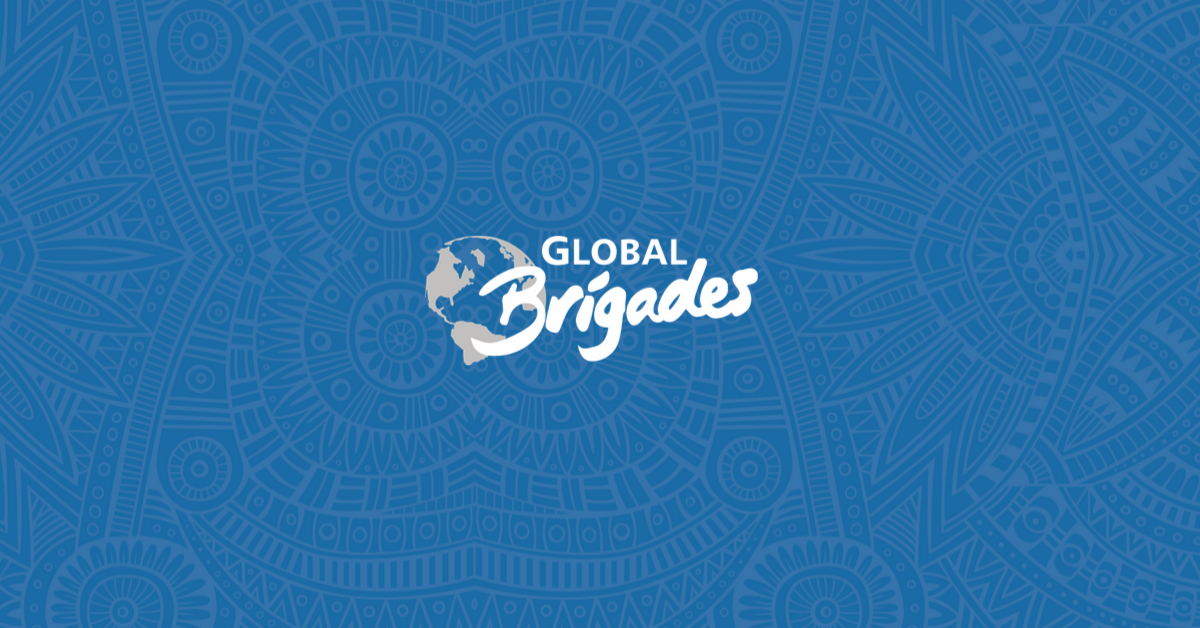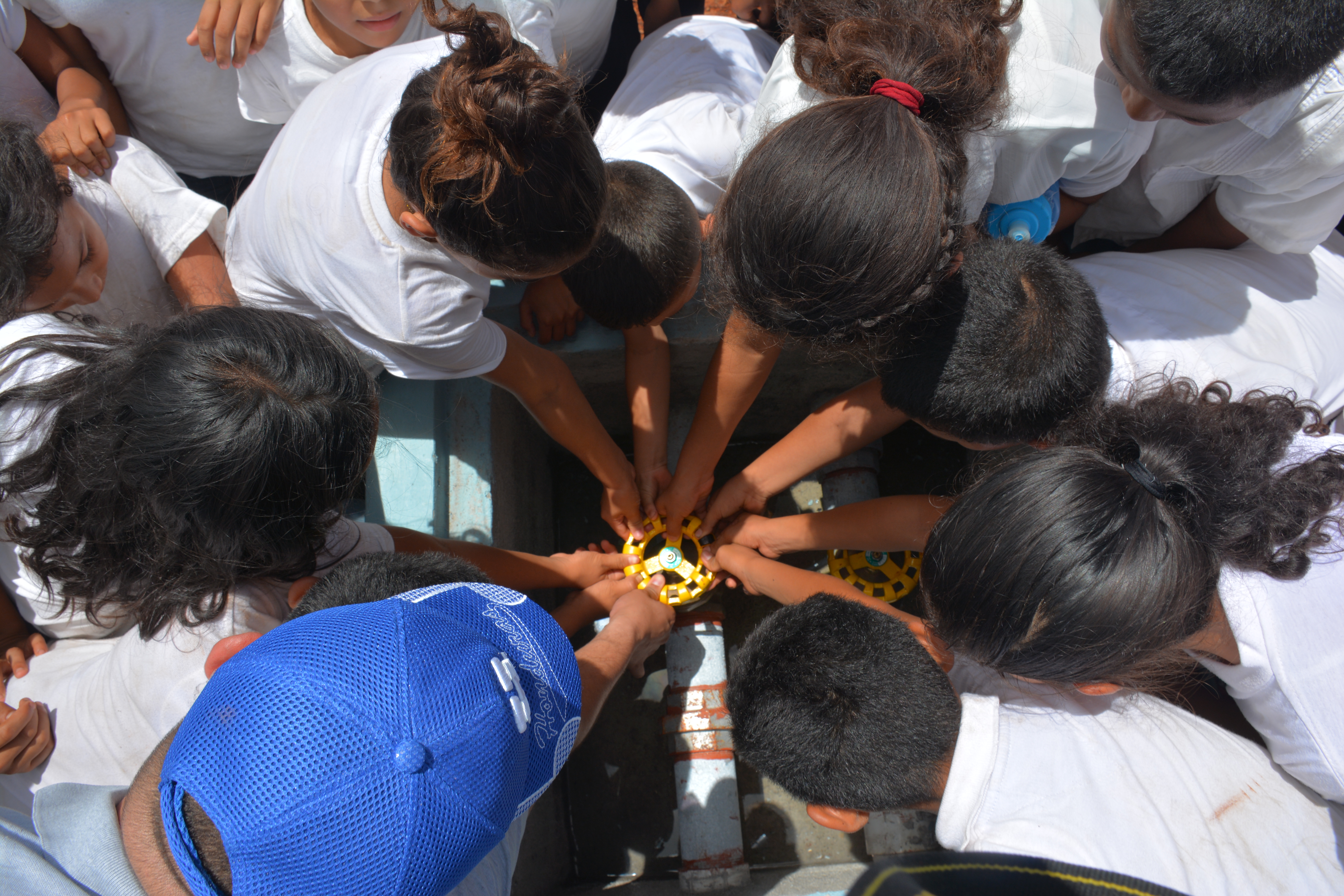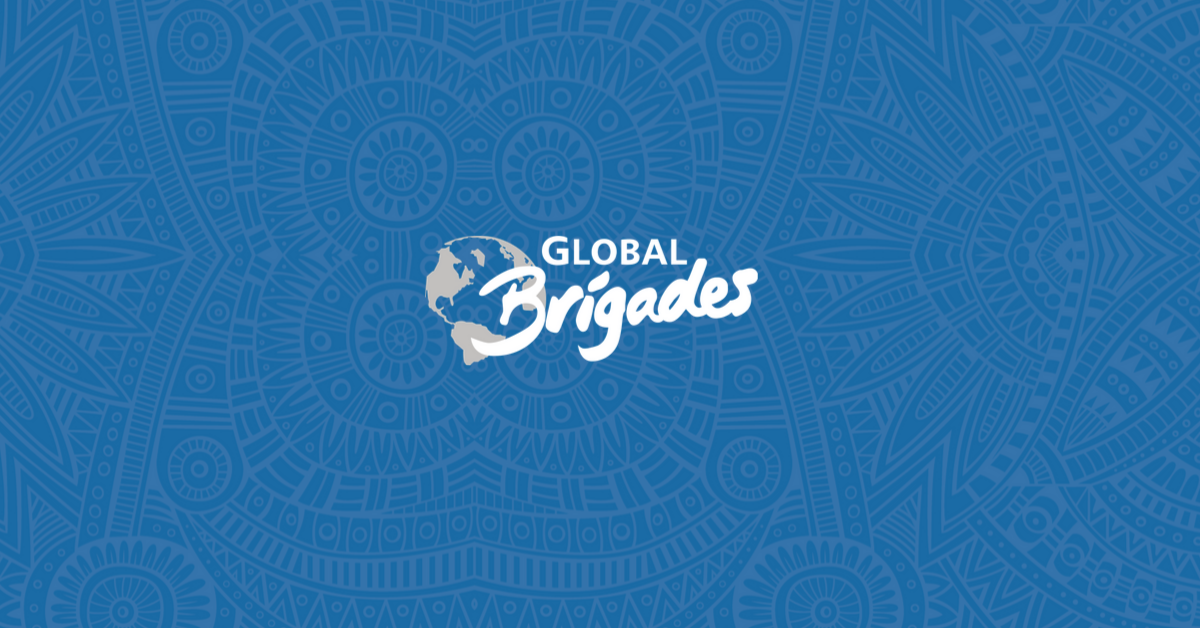As highlighted in my earlier blog post, Global Brigades offers legal assistance to vulnerable communities by connecting individuals in need of legal aid with appropriate referrals. These referrals primarily go to legal organizations that have partnered with Global Brigades. These organizations are dedicated to offering legal guidance to asylum-seeking migrants, advocating for their human rights in accordance with Domestic, European Union, and International Law, and holding authorities accountable for perceived injustices against these communities. This particular program of Global Brigades is appropriately named Legal Empowerment Brigades.
Exploring the Migrant Experience
Greece serves as the initial entry point into the European Union for migrants seeking improved living conditions for themselves and their families. Contrary to common assumptions, a significant portion of migrant populations worldwide either remain internally displaced within their own countries or seek refuge in neighboring nations. This is evident when examining the countries with the highest numbers of refugees, with Turkey, Iran, Colombia, Germany, and Pakistan ranking among the top five. Except for Germany, each of these countries shares borders with nations facing political, economic, or environmental crises, making them the primary destinations for individuals fleeing persecution and challenging conditions. While many opt to stay in proximity to their home countries, the enduring nature of these crises and humanity's pursuit of better opportunities often compel them to move westward.
Legal Empowerment Brigades offers brigaders, typically from backgrounds in Law, Human Rights, and Humanities, a unique opportunity to gain firsthand insights into the Greek refugee situation. They do so by engaging with lawyers, human rights activists, and refugees affiliated with GB's legal partners. These individuals provide students with valuable discussions on Greek politics, and Greek and EU laws, shedding light on the challenges and obstacles faced by migrants in their efforts to enter EU territory (either by land or sea) or to assimilate into Greek society. They approach these issues from a human rights and legal standpoint, often using specific cases to illustrate their perspectives.
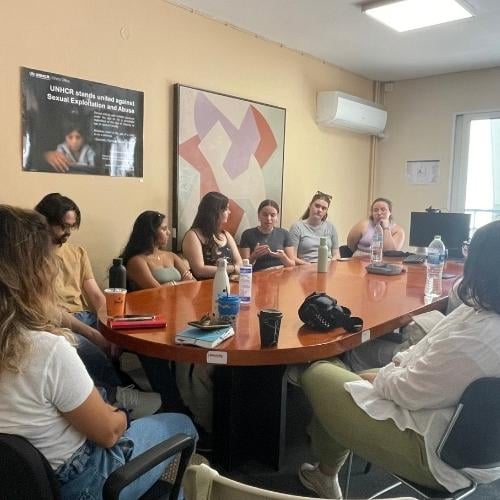 Lawyers at the Greek Refugee Council interacting with the Legal Brigadiers
Lawyers at the Greek Refugee Council interacting with the Legal Brigadiers
A Closer Look at Border Control, Refugee Treatment, and Legal Advocacy
The EU/Greek border authorities have consistently faced scrutiny and accusations of violating International Law. These alleged violations include not adhering to the Law of the Sea, instances of pushbacks (The practice of returning asylum seekers to their home countries without undergoing formal processing), and delays or negligence in responding to vulnerable migrants attempting perilous crossings in fragile vessels within territorial waters. Calls for accountability regarding these actions, both domestically and internationally, have frequently been met with denial and attempts to downplay the events. This pattern endures as long as media attention remains, and once the attention wanes, the cycle restarts.
For asylum seekers who manage to reach the Greek islands or the mainland, their challenges persist. After spending their first month in reception centers, they are later transferred to refugee camps. Refugees in Greece have limited access to social housing, which confines them to living in camps or makeshift accommodations. Official employment is off-limits until they attain resident status, leaving them reliant on a monthly stipend of 70 Euros per person and income from informal work opportunities. The prevailing xenophobic rhetoric against migrants, fueled by the current political climate, further exacerbates their plight. The contrasting treatment of refugees has become strikingly evident for many when comparing the attitudes and protocols of Greek and EU authorities toward Ukrainian refugees following the Russian invasion with those toward refugees primarily from the 'Global South’.
I had the privilege of participating in a Legal Empowerment Brigade alongside a visiting chapter composed of Law students from Oxford University and the University of Nottingham. Given my primarily medical and humanitarian background, their discussions and engagements with the professors and attorneys associated with the Greek Refugee Council provided me with an enhanced comprehension of the legal and political challenges faced by refugees. The approach taken by both the Greek and EU authorities regarding refugees, as well as their use of the term 'crisis,' provided the students from England with an opportunity to draw parallels with how the United Kingdom managed refugees, both pre-and post-Brexit. The educators frequently cited instances of the Greek and British governments intensifying their endeavors to avoid their international responsibilities, emphasizing the concept of enhanced 'externalization' of borders.
At the beginning of the Brigade, the brigaders were presented with an actual case study involving the contentious handling of a migrant-carrying sea vessel by the Greek Coast Guard. This case had been brought before the European Court of Human Rights, with the Greek State and the migrants representing opposing sides. The students were divided into two groups and tasked with taking either a Pro-State or Pro-Migrant position. Throughout the week, they were given materials to review and support their respective positions in addition to the lectures.
On the penultimate day of the Brigade, these groups engaged in a stimulating and captivating debate. They utilized the case's factual information, legal terminology, and relevant case law to justify their positions. Following the debate, the Representative of the Greek Refugee Council offered his perspective on each side's arguments and also disclosed the real-world judgment rendered by the ECHR regarding the same case. This entire exercise provided the students with a distinctive insight into the operations of the European Court of Human Rights.
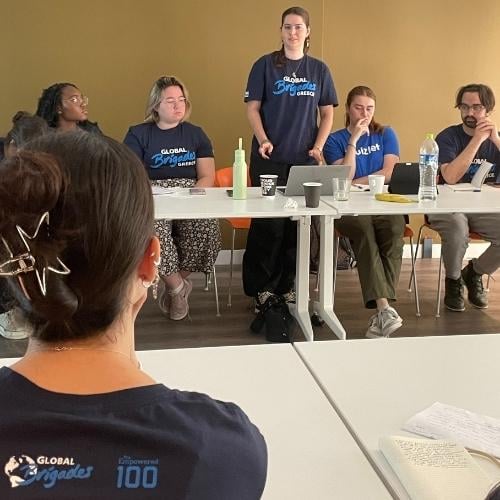 The Brigadiers engaged in a compelling debate session using facts from a real-life case study.
The Brigadiers engaged in a compelling debate session using facts from a real-life case study.
Empathy and Education
To ensure that the students not only navigate the complexities of the legal landscape but also grasp the tangible impact of decisions made by politicians, courts, and authorities on vulnerable individuals, the brigaders, much like the Medical Brigade discussed in my previous blog, were taken to a shelter for unaccompanied minors. This experience was both surreal and emotionally stirring. The shelter was providing refuge to orphaned children of non-Greek ethnicities, ranging in age from 2 to 12 years.
The brigaders engaged in playful interactions and games, as the curious and affectionate children welcomed these unfamiliar faces speaking an unfamiliar language in a way that adults rarely do. Leveraging their legal and human rights backgrounds, they imparted knowledge to the children using a language they could easily understand: art, games, and affection. Although the brief time spent with these children brought smiles to their innocent faces, their uncertain reality and future without parents or family cast a sobering shadow on the experience.
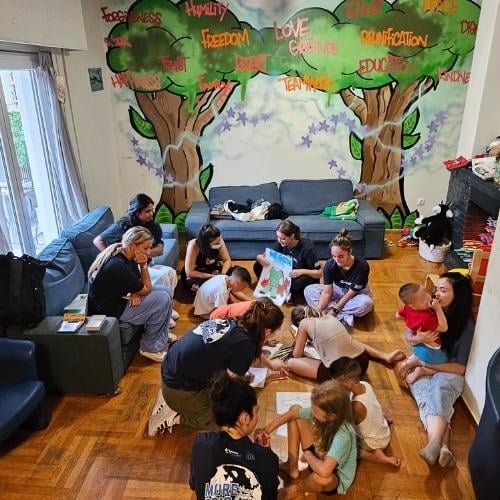
What initially was intended as an educational session for the children at the shelter unexpectedly transformed into a deeply emotional and enlightening experience for the brigadiers themselves
Empathy Ignites Action
Tears welled up in our eyes as the children hugged us and exchanged high-fives when it was time for us to leave. This encounter prompted us to reflect on the privilege we were born into and underscored the world's inherent injustices. Through this experience, it became evident in our daily reflections that the students had recognized the profound implications their future careers, possibly in human rights or refugee law, will have on the lives of real and vulnerable population. We were prompted to imagine a refugee family as if they were our own, contemplating how we would want them to be treated if we ever found ourselves in a situation even remotely as dire as those faced by these children and their parents.
Ready to make a difference? Join our Legal Empowerment Brigades and be a part of transformative experiences. Together, we can create a brighter future. Join us now and make your impact felt!



